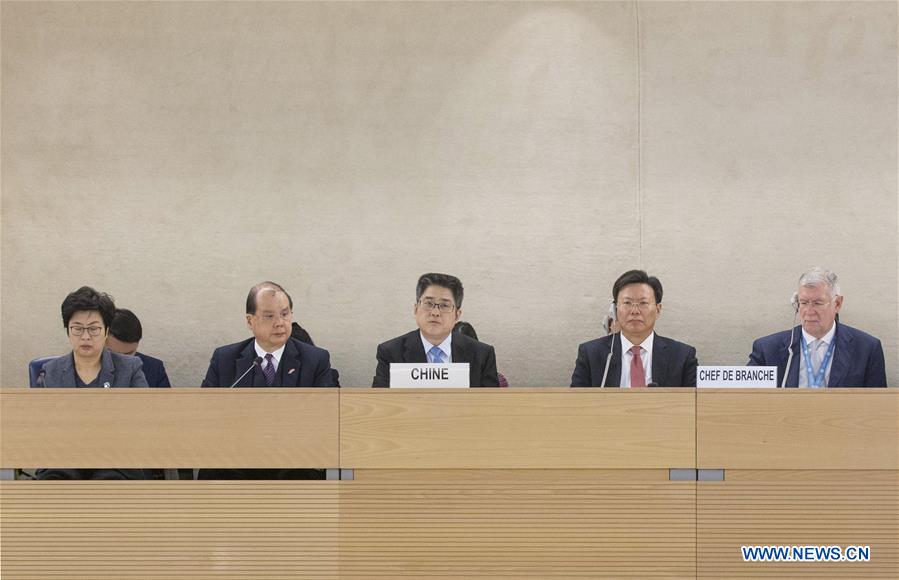UN human rights review on Beijing completed
By CHEN WEIHUA | China Daily | Updated: 2019-03-18 08:00

China completed its third review at the United Nations Human Rights Council in Geneva, Switzerland, a process on Friday that Vice-Foreign Minister Le Yucheng described as "smooth" and "very successful".
The UN Human Rights Council reviews its members' human rights every four to five years in a process that is officially called the Universal Periodic Reviews. The review was chaired by Coly Seck, permanent representative of Senegal to the UN Office in Geneva, Switzerland, and also president of the UN Human Rights Council.
Le, who is head of the Chinese delegation to the 40th session of the UN Human Rights Council, said there has been wide recognition of China's human rights achievements and human rights development path and its commitment to promote human rights.
Recalling his announcement in Geneva in November during the Universal Periodic Reviews that China would take 30 new measures to promote human rights development, he said "most of those measures have seen an early harvest".
China turned down 62 recommendations that it believes are either not in line with the country's national conditions or are premature, inconsistent with the facts or put forward with political prejudice.
Le described the "counterterrorism measures" adopted in the Xinjiang Uygur autonomous region as "not issues about ethnic or religious matters. ... They are matters concerning the maintenance of stability in Xinjiang and the maintenance of China's territorial integrity."
The vice-foreign minister emphasized that terrorist activities are closely related to religious extremism, which once was rampant in Xinjiang. He said the local Xinjiang government would not sit idly by in the face of terrorist threats, which have affected the region since the 1990s.
The Xinjiang government has adopted a series of measures to combat terrorism and extremism in recent years, including the establishment of a vocational education and training program.
Le said the vocational education and training centers are boarding schools and campuses rather than concentration camps, as alleged in some media reports.
He said the vocational education and training program is established to help those influenced by extremism return to normal life through education. As a preventive measure, it is another major contribution that China has made to international counterterrorism, he said.
"We will keep improving the vocational education and training program. As the counterterrorism situation improves, the program will be gradually downsized, leading to an end of the program," he said.
























